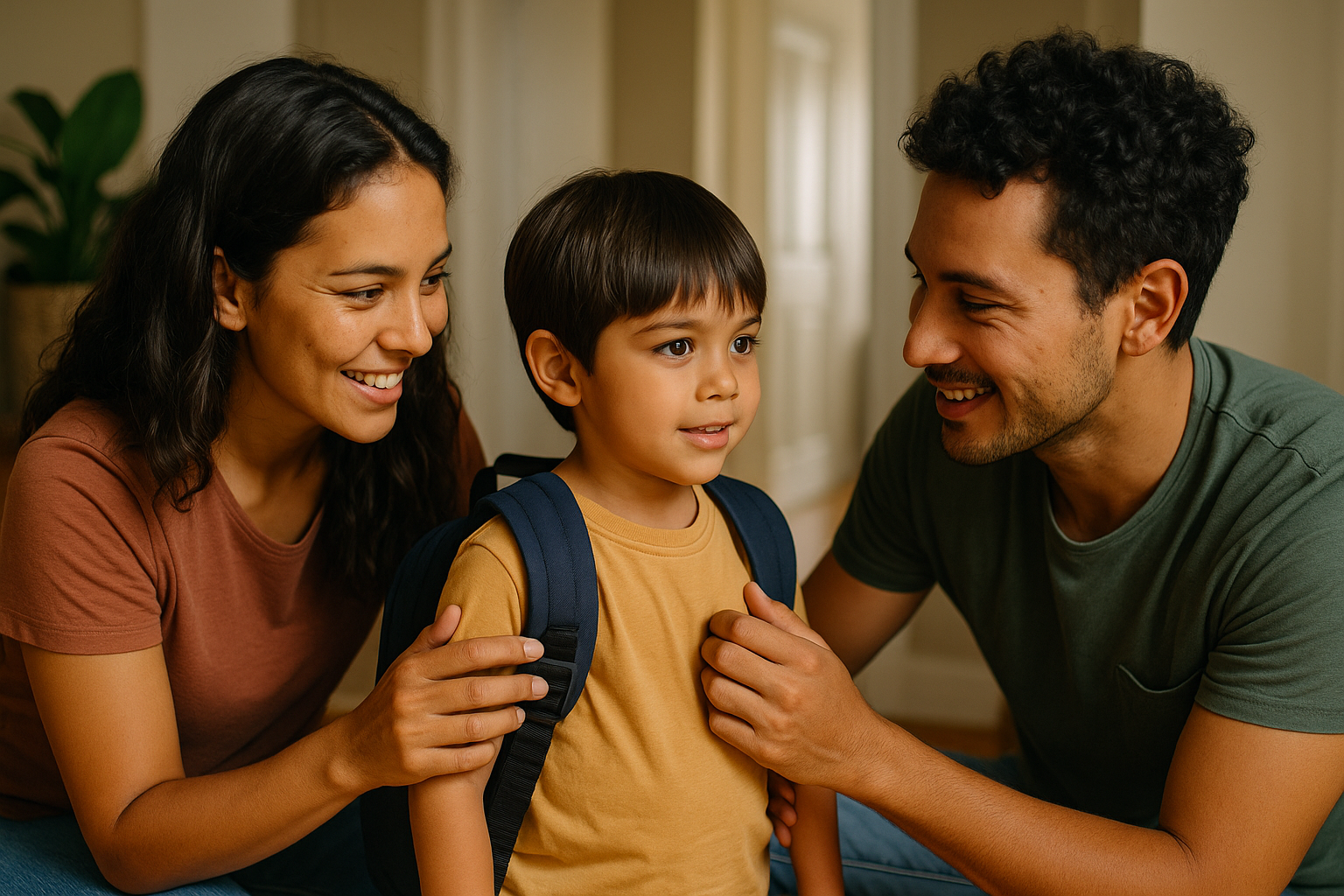Starting school — whether it’s preschool, kindergarten, or a new grade — is a big milestone. It’s exciting, but it can also bring anxiety for both children and parents. With the right support, you can help your child face the transition with confidence, calm, and curiosity.
In this article, you’ll discover practical steps to emotionally and practically prepare your child for their first day of school.
Why This Transition Matters
The first school experiences set the tone for how children feel about learning, routines, and relationships outside the home. A positive start helps them:
- Build confidence and independence
- Adapt to new routines and expectations
- Develop social skills
- See school as a safe, welcoming space
Your preparation makes a lasting impact.
1. Talk Positively About School Ahead of Time
Start weeks in advance by having open, upbeat conversations about school.
Say things like:
- “You’re going to meet so many new friends!”
- “There will be story time, play time, and fun games.”
- “Your teacher will be there to help you when you need it.”
Avoid projecting anxiety — let your enthusiasm set the tone.
2. Visit the School or Classroom in Advance (If Possible)
If the school offers orientation or a meet-the-teacher day, take advantage of it.
Benefits:
- Familiarizes your child with the environment
- Reduces fear of the unknown
- Allows them to meet staff and explore the space calmly
If you can’t visit, show photos or take a virtual tour if available.
3. Create a Predictable Morning Routine
Establishing structure helps reduce stress on the first day and beyond.
Practice the routine a week before school starts:
- Wake up at the expected time
- Get dressed, eat breakfast, brush teeth
- Pack the backpack together
Make mornings calm by preparing what you can the night before.
4. Read Books About Starting School
There are many children’s books that gently introduce what to expect.
Look for stories that:
- Show diverse school environments
- Include characters feeling nervous and overcoming it
- Emphasize friendships, learning, and support
Reading helps normalize emotions and builds excitement.
5. Role-Play the School Day
Pretend play helps children process experiences and reduce anxiety.
Act out:
- Saying goodbye at drop-off
- Meeting the teacher
- Playing with classmates
- Asking for help
Let your child take the lead and add humor to make it fun.
6. Give Them a Comfort Object (If Allowed)
A small, familiar item can provide emotional security during the first few days.
Ideas:
- A family photo inside the backpack
- A small stuffed animal or “bravery charm”
- A note in their lunchbox
These reminders help them feel connected to home.
7. Manage Separation Anxiety With Love and Confidence
If your child clings or cries at drop-off, stay calm and reassuring.
Say:
- “It’s okay to feel a little nervous — I’ll see you after school!”
- “You’re safe, and your teacher is there to take care of you.”
- “I’m proud of how brave you are.”
Keep goodbyes short and consistent to avoid prolonging distress.
8. Talk About the Day After School
Ask open-ended questions that invite sharing without pressure.
Try:
- “What was your favorite part of the day?”
- “Did anything surprise you?”
- “Tell me about your teacher or your friends.”
Listen with full attention — this shows school matters to you, too.
A Confident Start Begins at Home
Preparing your child for their first day of school isn’t about avoiding all fear — it’s about building their sense of safety, confidence, and curiosity. With warmth, structure, and encouragement, you’re laying the foundation for a lifelong love of learning.
You’ve got this — and so do they.
